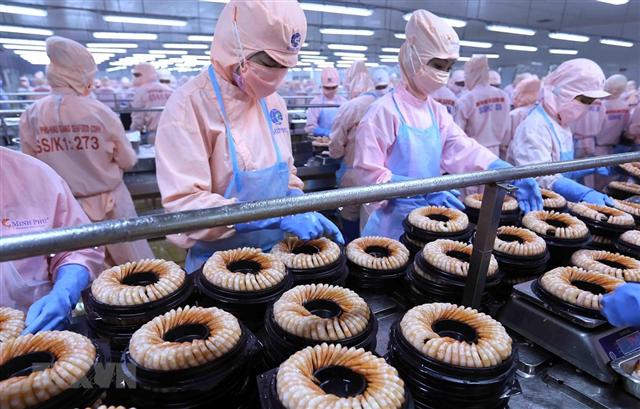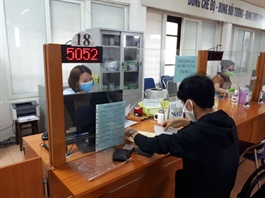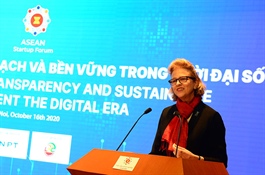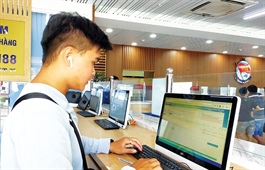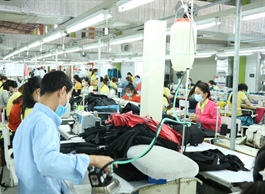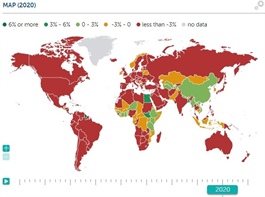New Japanese PM cementing bonds
New Japanese PM cementing bonds
With the official visit by Prime Minister Suga Yoshihide to Vietnam taking place this week, the Southeast Asian nation is still considered a special partner of Japan in its focus on cementing ties with ASEAN.
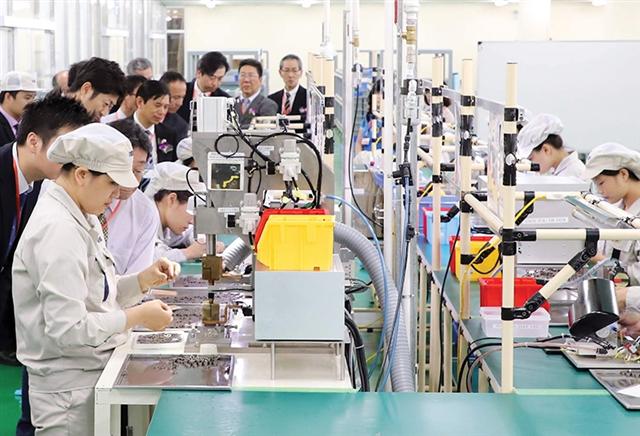
Japan’s activities, both politically and on the ground, are demonstrating continued support for past policies, photo: Duc Thanh
|
Traditionally in Japan, an official visit overseas by the prime minister takes many months to prepare and has to be approved by the government’s cabinet in an official resolution. However, PM Yoshihide’s visit on October 18-20 to Vietnam, also his official overseas trip since taking office in mid-September, may be an exception.
The event, attracting special attention from local and foreign media, was prepared in less than three weeks, and takes place only a month after Yoshihide was elected prime minister on September 16. Vietnam’s safe status for such a visit, with effective control over the current pandemic and no community infections for over a month, also plays in its favour in terms of welcoming foreign leaders. After leaving Vietnam, the Japanese leader will fly to Indonesia for another official visit.
“This visit demonstrates that Japan is attaching very special importance to its extensive strategic partnership with Vietnam. After he became the Japanese prime minister, one of the first two foreign diplomats Yoshihide met with was the Vietnamese Ambassador to Japan, Vu Hong Nam,” a representative from the Vietnamese Ministry of Foreign Affairs told VIR. “PM Yoshihide is also the first to be directly welcomed by Vietnam since early this year.”
While serving as chief cabinet secretary under former PM Abe Shinzo’s government, Yoshihide paid very few overseas trips. In 2007, he visited Vietnam when he was Japanese Minister for Internal Affairs and Communications.
Commenting on the new visit, Carlyle A. Thayer, emeritus professor from the University of New South Wales at the Australian Defence Force Academy said, “Prime Minister Yoshihide’s prospective visits to Vietnam and Indonesia are to demonstrate continuity in Japan’s relations with Southeast Asia and give reassurance of Yoshihide’s continued support for former Prime Minister Shinzo’s free and open Indo-Pacific.”
PM Yoshihide’s visit to the two countries is also recognition of their international and regional roles, Thayer added. “Vietnam is currently chair of ASEAN, and will continue next year as non-permanent member of the UN Security Council.”
Revealing the plan for the visits at an executive meeting of Japan’s main governing Liberal Democratic Party on October 13, PM Yoshihide described ASEAN as the key to a free and open Indo-Pacific region. He said he aims to show that Japan will take the lead in promoting peace and prosperity in the region.
VIR was also told that the Japanese PM will visit the Vietnam Japan University, where he will deliver an important speech on Japan’s policies in Southeast Asia. The visit to Vietnam will be accompanied by about 30 people, mostly leaders of Japanese ministries and agencies.
It is expected that there will be the signing of some cooperation deals between Vietnam and Japan, including an MoU between Vietnam’s Ministry of Transport and Japan’s Ministry of Land, Infrastructure, Transport, and Tourism on building up national technical standards for Vietnam’s seaports; and an MoU between Vietnam’s Foreign Investment Agency with the Japan External Trade Organization and the Japan International Cooperation Agency on boosting investment promotion.
Besides that, AEON Group will also ink an MoU with Hanoi and Ho Chi Minh City, while Sumitomo Corporation will also follow suit with the northern province of Hung Yen to expand its project there. One year ago, Sumitomo announced a plan to invest over ¥14 billion ($133 million) in Thang Long Industrial Park II in Hung Yen, 30km to the east of Hanoi, expanding its size by 52 per cent to 526 hectares.
Construction is set to start in 2021. When finished, the park will be one of the largest Japanese-run industrial parks in the country.
According to Vietnam’s Ministry of Planning and Investment, as of September 20, Japan was Vietnam’s second largest foreign investor (after South Korea), with nearly 4,600 investment projects in Vietnam, registered at $59.87 billion. Vietnam-Japan bilateral trade turnover in the first nine months of 2020 hit $28.7 billion, with Vietnam earning $14.1 billion, down 5.7 per cent on-year, and spending $14.6 billion on imports from Japan, up 2.8 per cent on-year.







